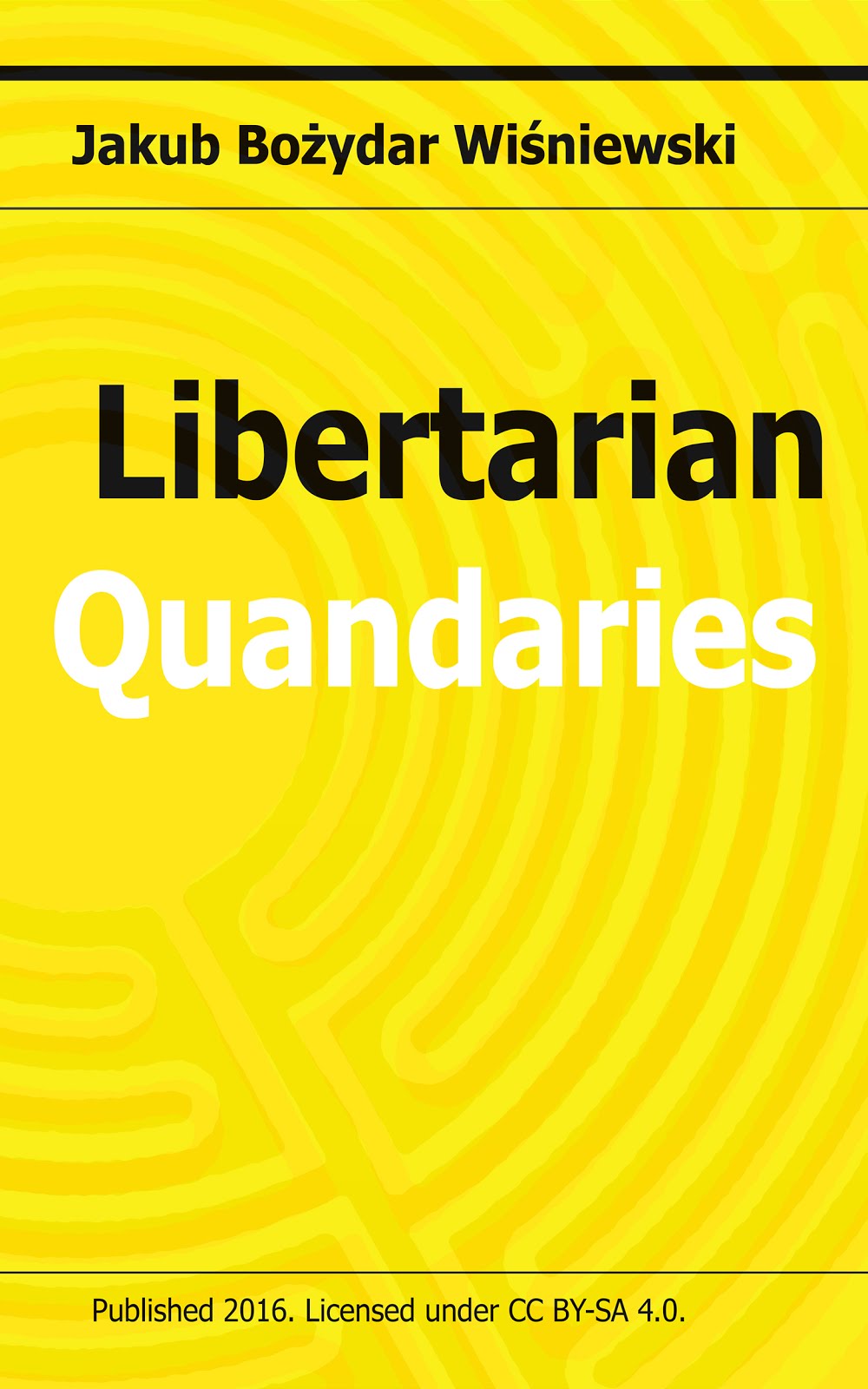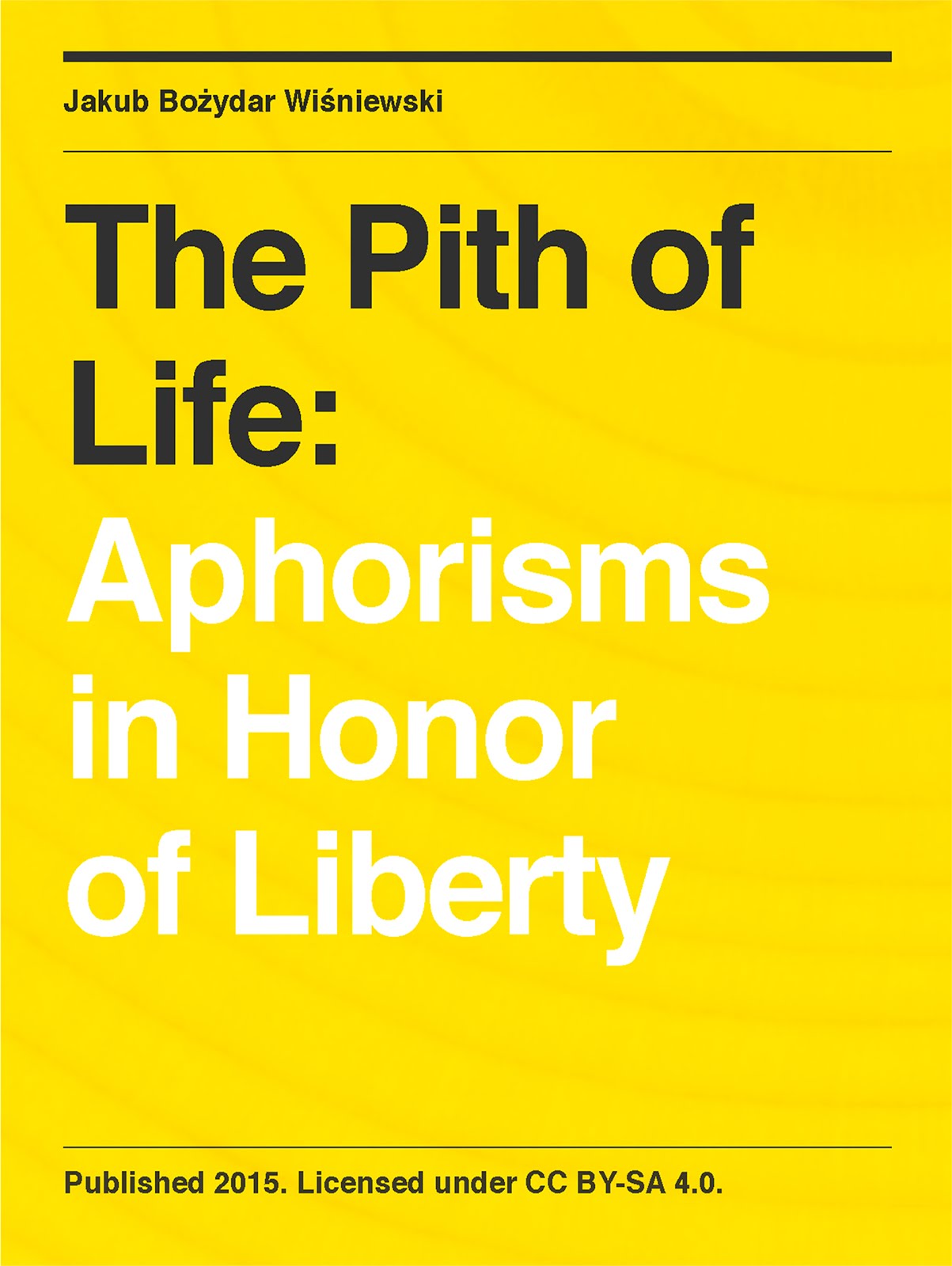Humankind continues to be as superstitious as it has always been. Religiously inspired superstition gave way to scientifically inspired superstition. One irrational doctrine - uncritical fideism - gave way to another irrational doctrine - technocratic scientism. The belief in the divine right of kings was replaced by the belief in the legitimate paternalism of bureaucratic "experts".
In fact, things got worse on this front - the modern superstition is even more irrational than the old one. One can treat seriously the argument that you owe obedience to the supreme being who endowed you with free will and reason, since you literally owe that being your status as a free agent. By the same token, it is possible to treat seriously the claim that you owe obedience to the direct representatives of such a being. But how can one treat seriously the claim that some human beings owe their status of free agents, and thus obedience, to other human beings, none of which enjoys any special divine imprimatur?
In any event, the common denominator of old and new superstitions is clear - it is statism, the belief in the salutary influence of centralized violence, aggression and coercion. If humankind is ever to grow into intellectual and moral maturity, it has to disabuse itself of this belief first and foremost.
Tuesday, March 13, 2012
Monday, March 12, 2012
The State Cannot Guarantee Anything
Contrary to what even some libertarian theorists seem to believe, there is no tradeoff between liberty and security, or between liberty and "welfare". Contrary to a premise usually taken for granted, the state cannot "guarantee" anything. In fact, it is in a much worse position to guarantee anything than a charitable institution or a business enterprise is. This is simply because the latter two have a reliable source of income, where by "reliable" I mean a source based on consensual support, enthusiasm and respect for the services they offer. In other words, as long as they continue to provide their patrons with the services of a sufficient quality, they can expect their income to remain steady or even grow.
The monopolistic apparatus of violence, aggression and coercion, on the other hand, cannot boast of having any such reliable source. Its situation is ever precarious in this respect - it is ever threatened by the possibility of its milking cows "voting with their feet", moving into the grey market, or ceasing entrepreneurial activity altogether. At the same time, it keeps growing the number of welfare dependants - those who decided to bet their lives on the belief that the state possesses a magical cornucopia capable of supporting them from womb to tomb.
In sum, unlike that of a charitable institution or a business enterprise, the state's relationship with its source of income is not based on mutual respect, appreciation and gratitude, but on resentment, constant threats of violence and the prospect of ever-growing parasitism. This, of course, leads to ever less resources being at its disposal and ever more entitlement claims being made on them. Far from being able to guarantee anything, in the long run such an entity is bound to be dead, to quote a most profoundly dead peddler of the cornucopian story.
Let us never ever believe that with sufficient determination and coercive power, one can eliminate the constraints of scarcity. That way lies the upside-down world of sophistical destruction.
The monopolistic apparatus of violence, aggression and coercion, on the other hand, cannot boast of having any such reliable source. Its situation is ever precarious in this respect - it is ever threatened by the possibility of its milking cows "voting with their feet", moving into the grey market, or ceasing entrepreneurial activity altogether. At the same time, it keeps growing the number of welfare dependants - those who decided to bet their lives on the belief that the state possesses a magical cornucopia capable of supporting them from womb to tomb.
In sum, unlike that of a charitable institution or a business enterprise, the state's relationship with its source of income is not based on mutual respect, appreciation and gratitude, but on resentment, constant threats of violence and the prospect of ever-growing parasitism. This, of course, leads to ever less resources being at its disposal and ever more entitlement claims being made on them. Far from being able to guarantee anything, in the long run such an entity is bound to be dead, to quote a most profoundly dead peddler of the cornucopian story.
Let us never ever believe that with sufficient determination and coercive power, one can eliminate the constraints of scarcity. That way lies the upside-down world of sophistical destruction.
Subscribe to:
Posts (Atom)


